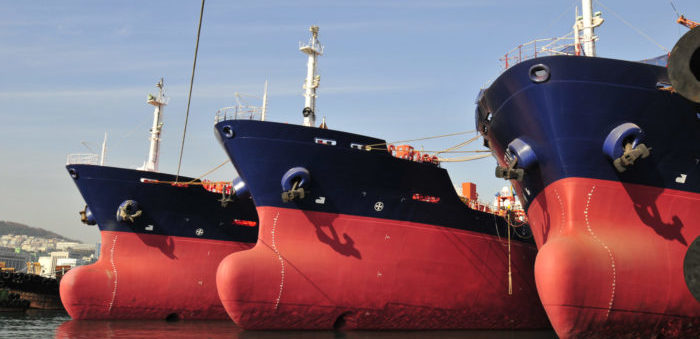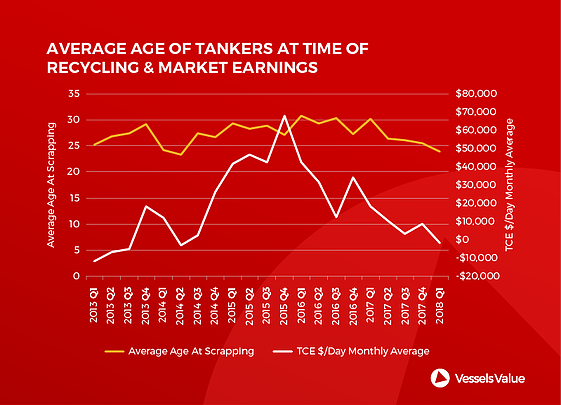As Vessels Value informed, the average age of tankers going for recycling has decreased below 25 years of age, as a result of lower earnings. Tankers are now being scrapped at a younger age than they were during a similar rate weakness in 2013.
The lower age of scrapping shows that some experience an extended period of low rates. The cost of upcoming regulatory requirements for Sulphur emission compliance in 2020 and Ballast Water Treatment Systems can cause ships not to be operational when they are around their 15th year of age. The same applies for ships of 20 years or more.
[smlsubform prepend=”GET THE SAFETY4SEA IN YOUR INBOX!” showname=false emailtxt=”” emailholder=”Enter your email address” showsubmit=true submittxt=”Submit” jsthanks=false thankyou=”Thank you for subscribing to our mailing list”]
Dry bulk scrapping started to get more slow as market conditions improved, while earnings have been steadily higher since the start of 2016. Only ships that are way passed their service life are being recycled, making the average age of scrapped ships above 25 years old.
Vessels Value mentions that dry bulk ships tend to be removed from service earlier than tankers, because of more damage from loading and storing bulk materials.


































































